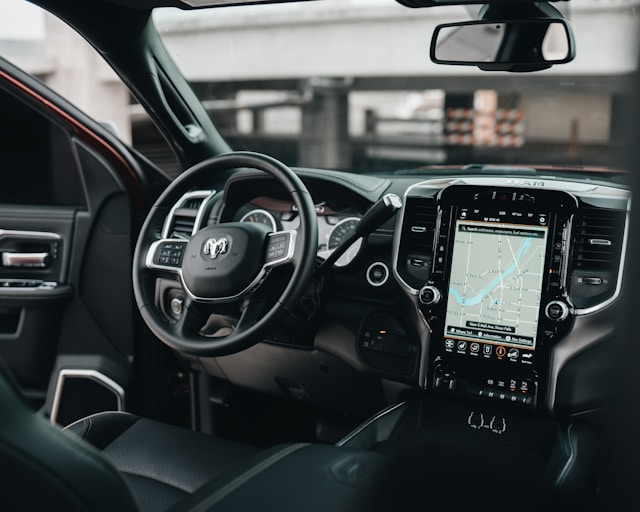Maintaining safety and efficiency in commercial fleets has never been more critical. With the advent of technology, dashcams have emerged as essential tools for fleet operators. These compact devices not only provide valuable insights into daily operations but also enhance security and accountability on the road. Below, we explore seven compelling benefits of integrating dashcams into commercial fleet management.
Enhanced Driver Safety
One of the primary benefits of using dashcams in commercial fleets is the enhancement of driver safety. Dashcams play a crucial role in monitoring driving behavior, allowing fleet managers to identify and address issues such as speeding, harsh braking, and distracted driving. By reviewing footage, managers can provide targeted feedback and training to drivers, fostering safer driving habits. From semi truck dash cameras to those specifically designed for smaller vehicles, these devices are a valuable investment in the overall safety of the fleet. This not only reduces the risk of accidents but also helps in mitigating potential legal and financial consequences. Just having a dashcam installed can also act as a deterrent to reckless driving and potentially save lives.
Incident Evidence Collection
Dashcams serve as impartial witnesses to incidents on the road, providing invaluable evidence that can be crucial during disputes or insurance claims. When an accident occurs, dashcams capture real-time footage, documenting the sequence of events leading up to, during, and after the incident. This concrete evidence can help determine fault, protect drivers from fraudulent claims, and expedite the processing of insurance claims. In an industry where time and clarity are vital, having access to clear video evidence can significantly reduce downtime and legal complexities.
Reduction in Insurance Costs
Installing dashcams in commercial fleets can lead to significant reductions in insurance costs. Many insurance providers offer discounts to fleets equipped with dashcams because these devices lower the risk profile of the vehicles. The presence of dashcams not only provides irrefutable evidence in the event of a claim but also encourages better driving behavior, which in turn reduces the frequency of incidents. This proactive approach to risk management can result in lower premiums and potentially additional savings through incentives offered by insurers. Video evidence from dashcams can help resolve claims more quickly and fairly, minimizing the financial impact on fleet operators and maintaining a strong relationship with insurance providers.
Monitoring Driver Behavior
Dashcams are instrumental in effectively monitoring driver behavior within commercial fleets. By providing continuous video recording, these devices enable fleet managers to oversee driving practices and ensure adherence to company policies and road safety regulations. The real-time data collected by dashcams allows for the identification of risky behaviors such as excessive speeding, tailgating, and frequent lane changes. Managers can use this information to offer constructive feedback and implement tailored training programs, fostering a culture of safety and responsibility.
Prevention of Fraudulent Claims
Dashcams play a pivotal role in deterring and preventing fraudulent claims within commercial fleets. In the unfortunate event of an accident, these cameras provide indisputable video evidence that can protect fleet operators from false allegations and staged incidents. Fraudulent claims are a significant concern for commercial fleets, as they can lead to increased insurance premiums and legal challenges. By having dashcams installed, fleet managers can swiftly verify the facts of an incident, minimizing the risk of fraudulent activities. This helps maintain the integrity of the fleet’s operations and safeguards the company’s financial resources.
Route Optimization and Efficiency
Dashcams contribute to route optimization and overall fleet efficiency by providing valuable insights into traffic patterns and road conditions. By analyzing footage, fleet managers can identify the most efficient routes, thereby reducing travel time and fuel consumption. Video data from dashcams helps in pinpointing regular traffic bottlenecks or identifying alternate pathways that might be more cost-effective and time-saving. Through enhanced route planning driven by dashcam insights, fleets can achieve more timely deliveries and reduce wear and tear on vehicles, ultimately improving customer satisfaction and operational productivity.
Improved Accountability and Training
Dashcams significantly enhance accountability and training within commercial fleets. By providing an accurate and unbiased account of daily operations, these devices encourage drivers to adhere to best practices and company policies. Knowing their actions are being recorded, drivers are more likely to maintain responsible behaviors, reducing the risk of safety violations and improving overall performance. The video footage captured by dashcams serves as an excellent training resource, allowing fleet managers to conduct detailed reviews of specific incidents or driving patterns. This hands-on approach enables targeted coaching, ensuring that training programs directly address areas needing improvement.
Integrating dashcams into commercial fleet operations offers a multitude of benefits that enhance both safety and efficiency. From providing irrefutable evidence during incidents to facilitating better driver behavior and reducing insurance costs, these devices serve as valuable assets in modern fleet management. Dashcams not only help prevent fraudulent claims but also allow for improved route optimization and comprehensive driver training. As technology continues to advance, the application of dashcams will likely expand, further solidifying their role as indispensable tools for fleet operators seeking to maintain high standards of safety, accountability, and performance.


